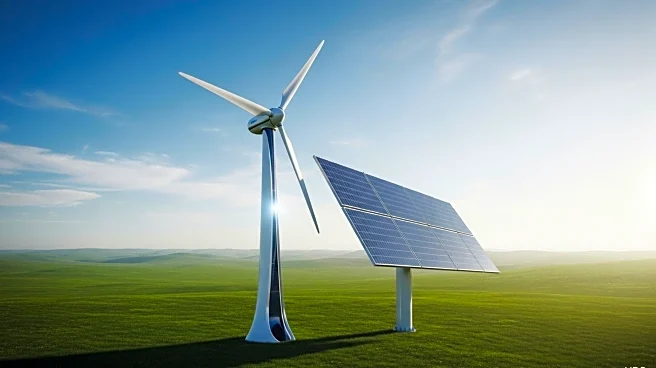What's Happening?
The International Energy Agency (IEA) has released a report forecasting a significant increase in global renewable energy capacity, predicting a rise of 4,600 GW by 2030. This growth is driven by declining costs and increased deployment of solar and wind technologies. Despite a reduction in growth expectations for the U.S. due to policy changes, other regions like Europe, Asia, and the Middle East are accelerating their renewable energy initiatives. Solar energy is expected to account for 80% of new capacity, with pumped-storage hydropower also seeing substantial growth. The report highlights the need for diversified supply chains, particularly in solar technology, which remains heavily concentrated in China.
Why It's Important?
The anticipated growth in renewable energy capacity is crucial for global efforts to combat climate change and reduce reliance on fossil fuels. As renewables become more cost-effective, they are poised to play a leading role in the global energy system, potentially replacing fossil fuel generation on a large scale. This shift could lead to significant environmental benefits, including reduced greenhouse gas emissions and improved air quality. However, the concentration of solar supply chains in China poses challenges for energy security, necessitating strategic investments in diversification.
What's Next?
The IEA advises policymakers to focus on diversifying supply chains and integrating energy storage solutions to ensure a stable transition to renewable energy. Countries with ambitious solar rollout plans must address supply chain security to avoid potential disruptions. The report suggests that sustained policy support and international collaboration will be essential to accelerate the transition to a clean energy system.
Beyond the Headlines
The rapid growth of renewables is reshaping the global energy landscape, with implications for energy security, economic competitiveness, and geopolitical dynamics. As countries invest in green technologies, they may experience shifts in industrial and economic power, influencing global trade and diplomacy.










